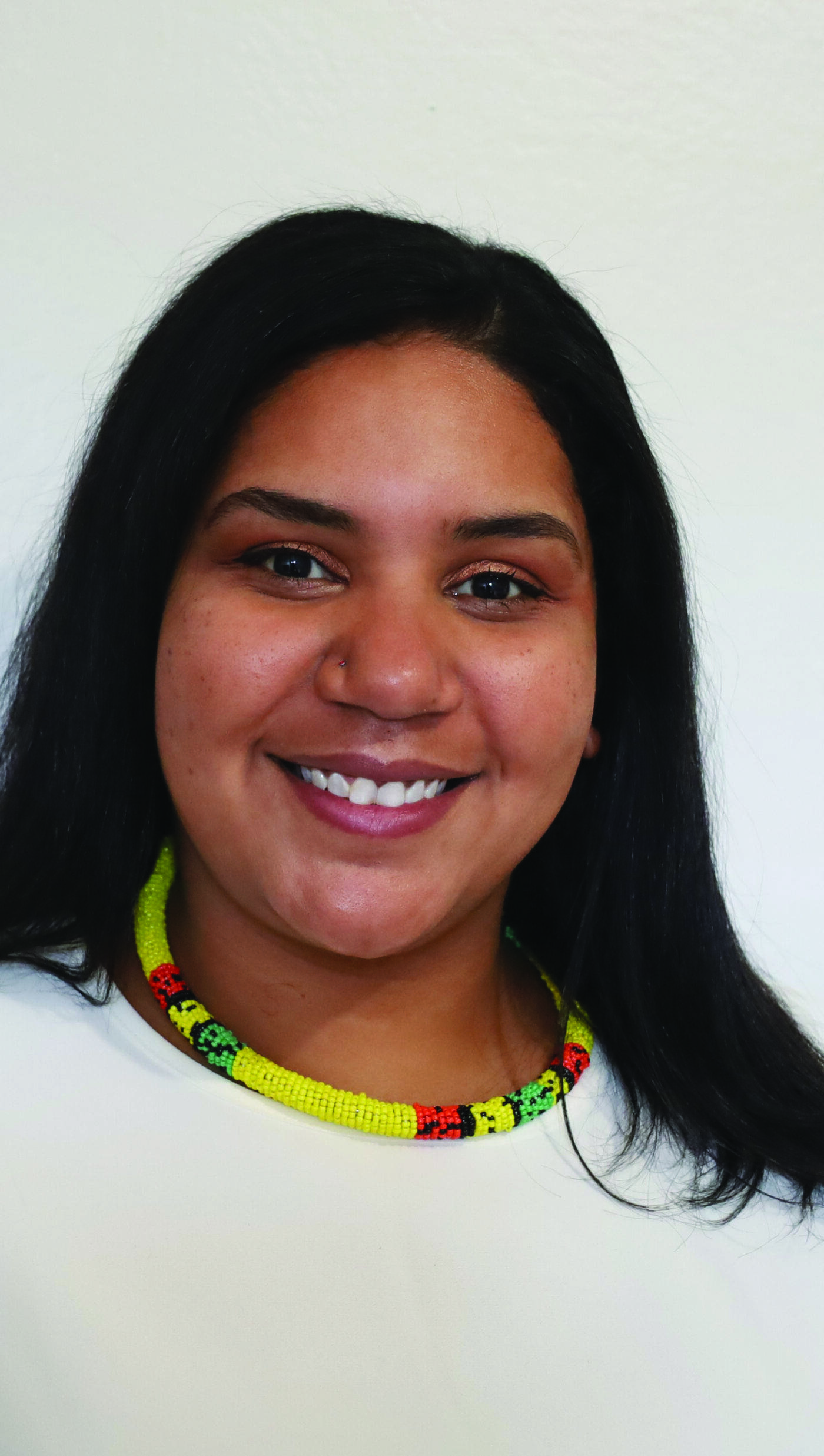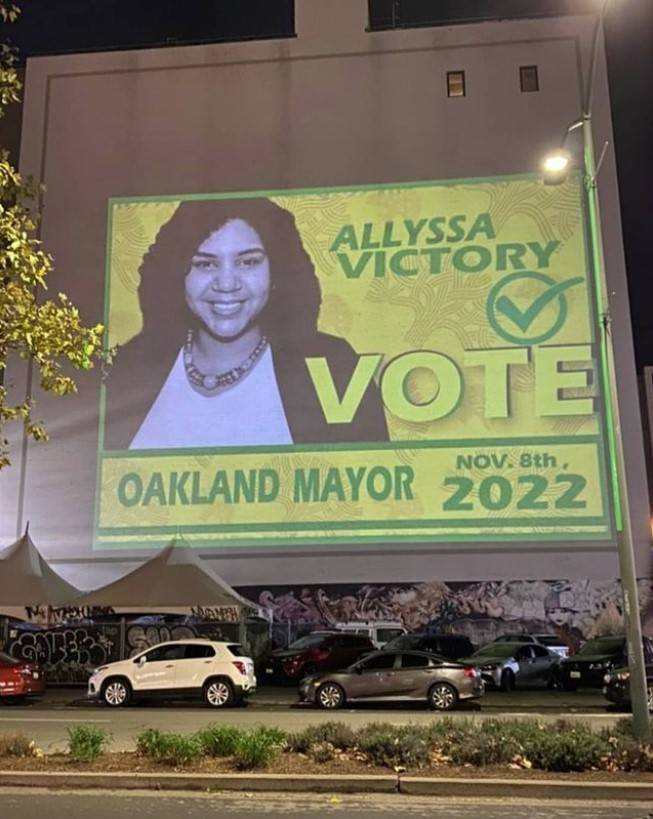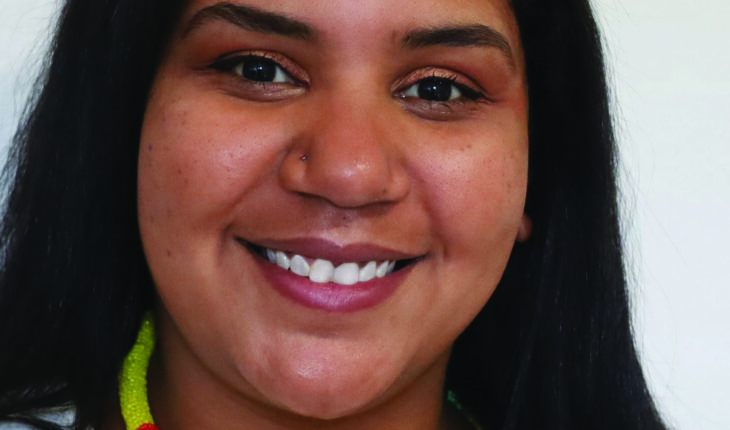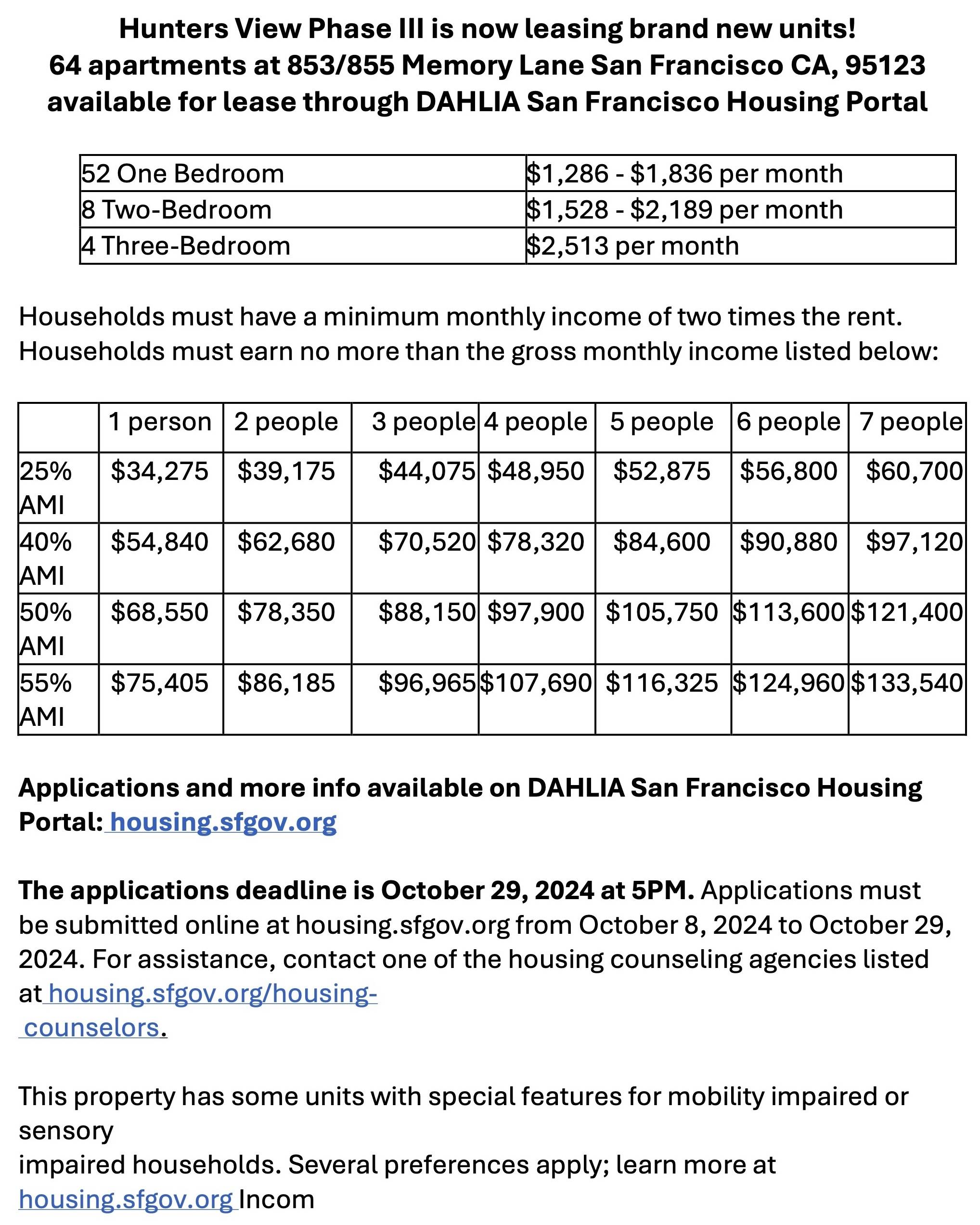
by JR Valrey, The People’s Minister of Information
On election day 2024, residents of Oakland voted to recall Mayor Sheng Thao, the first mayor to be recalled in Oakland, and District Attorney Pam Price, the first Black woman to be a DA in the town’s history.
Progressive people in the area took this as a loss, partly because the mayoral recall’s 2025 special election will potentially cost the cash strapped town millions of dollars to orchestrate, only to have another mayoral election in 2026.
Nevertheless, the declining living standard in Oakland brought on by the slipping economy, caused largely by the world closing down over the Covid pandemic a few years ago, has caused citizens to be a little more weary of crime and inflation.
I talked to attorney Allyssa Victory, a former 2022 Oakland mayoral candidate, about her thoughts on some of the results of the 2024 elections, as well as I talked to her about any intentions she may have to run in the ’25 mayoral special election in Oakland.
JR Valrey: As a local leader in the Democratic Party, what are your thoughts on why Kamala Harris lost?
Allyssa Victory: Vice President Harris certainly had an uphill battle to gain enough momentum as a late candidate once Biden decided to drop from the race 3 and a half months before the election. Democrats immediately coalesced to support Kamala as the party’s candidate but that did not create enough time for a full campaign rollout or comprehensive voter outreach.
I think ultimately Democrats, especially in California, underestimate the appeal of unapologetic white supremacy offered by Trump. Many did not take Trump’s candidacy seriously and felt comfortable dismissing his campaign. Everyday Americans will continue to vote against their interests and against progress as a whole. VP Harris and the Democratic Party failed to offer a platform that was bold in addressing poverty, racism and other critical issues to voters like U.S. involvement in genocide.
Despite VP Harris’ loss, she ran as an Oakland native and claimed both her Black and South Asian identities. This helps to keep Oakland and the Bay Area in the national political conversation and continue the dialogue on identity and politics in the U.S. Influencing the party to better respond to voters’ needs is why I continue to serve as an associate member of the Alameda County Democratic Central Committee as well as an elected delegate and executive board member to the California Democratic Party.
JR Valrey: As an attorney, what do you expect to happen under a Trump presidency? What kinds of big legal cases do you expect to see in the courts?
Allyssa Victory: As a civil rights attorney, a second Trump administration promises to roll back American rights in critical areas including, but not limited to: education, racial justice, criminal justice, reproductive health and privacy, and immigrant rights. Trump promises to cut social safety net programs and to cut resources from federal agencies and departments.
The Republican Party also ran a platform of deregulation in areas like climate emissions. We will see Trump and Republicans attempt to change our country’s political structure and challenge longstanding rights. As during the first Trump term, lawsuits will attempt to use the courts as a check on the executive office of the president and to preserve existing constitutional and civil rights.
JR Valrey: What are your thoughts on HR 9495 aka The Anti-Non Profit bill? What do you think about its legal and political ramifications? What does it say about the current state of the country?
Allyssa Victory: A vote on HR 9495 failed in early November 2024 but will come up again. We will get to see our new Congresswoman Lateefah Simon tackle this and other issues. HR 9495 is titled “Stop Terror-Financing and Tax Penalties on American Hostages Act” and is being marketed to the public as relief from tax filing deadlines if an American or their spouse is held hostage.
However, a provision of the proposed Act would allow the US Department of the Treasury to strip tax-exempt status from nonprofits that are deemed “terrorist supporting organizations.” The broad authority in the Act could be used to limit free speech rights of non-profit organizations, press, and educational institutions. It would grant the presidential administration the ability to silence and censor its critics, target political opponents, and punish organizations that speak up for crucial issues like abortion access and ending international genocide. HR 9495 increases the powers of the president at the expense of all of our civil rights and liberties.
JR Valrey: What are your thoughts on the recall of Oakland Alameda County District Attorney Pamela Price?
Allyssa Victory: D.A. Price was elected on a platform of justice done right and justice with compassion. She made history as the first Black woman D.A. in Alameda County and unfortunately could not overcome a recall launched by her opponents and critics and funded by large donors. The District Attorney’s Office and our local criminal justice system will face numerous transitions in the coming years. D.A. Price will be removed from office once the election results are certified. Staff will run the office in the interim until the Alameda County Board of Supervisors appoints a new D.A. The appointee will serve as D.A. until the 2026 elections, where a new D.A. could be elected. Whomever is elected in 2026 will serve until the 2028 elections where a new D.A. could be elected.
JR Valrey: What are your thoughts on the recall of Mayor Sheng Thao?
Allyssa Victory: Like D.A. Price, Mayor Thao could not overcome a recall launched by her opponents and critics and funded by large donors. The mayor recall passed, yet Oakland did not reject progressive candidates. Oakland voters elected progressive leaning candidates across the races for City Council, City Attorney and School Board.
Oakland is in for more instability of mayoral leadership and possible setback to solutions on our longstanding crises. Mayor Thao will be removed from office once Alameda County certifies the election results. The interim mayor will be the council president, who is currently Nikki Fortunato Bas.
However, councilmembers elect a new council president, and Bas is currently in the lead for the D5 county supervisor race. If Bas wins the supervisor race, she will be sworn into her new role in January 2025 leaving the D2 council seat vacant. Oakland just elected four new councilmembers, who will be sworn in in January 2025.
The current landscape creates the possibility of a new council, new council president and an interim mayor while the city runs a special election for mayor as well as a special D2 council race. Special elections tend to favor conservative candidates with access to large donors because voter turnout is typically lower and candidates have less time to campaign. Whoever is elected in the 2025 special elections will serve until regular elections in 2026. In 2026, Oakland will have regular elections for mayor and councilmembers for the even-numbered city districts.
JR Valrey: What are the people of Oakland’s biggest needs, from your perspective?


Allyssa Victory: Oakland’s needs are the same as when I ran for office in 2022 and have been for several election cycles. We have a crisis of leadership that is affecting the delivery of high-quality public services to all. We need leadership that acts with urgency, equity and compassion for the people of this City.
We have a homelessness crisis, and since 2018 the city’s policy is to manage and evict encampments instead of to create emergency shelters and pipelines to housing stability.
We have a public safety crisis that includes federal police oversight of Oakland’s police department as a result of violating the civil and constitutional rights of residents. We need to end the oversight by getting into compliance with the law and utilizing our resources and violence strategies more effectively.
We have a financial crisis with city financial strain and inequity of opportunity. Lack of economic opportunities, inequity in city contracting, and failure to protect Oakland’s workers are well documented without a clear action plan or leadership willing to resolve them.
Oakland had multiple political financial corruption investigations and scandals confirmed this year. Oakland needs transparent leaders with integrity who they can trust to serve the public without corruption or undue influence of money and special interests.
JR Valrey: Is crime up or down in Oakland because I keep seeing conflicting reports in the mainstream media on the real state of the town? What can be done without increasing the police presence and budget to make residents feel safer?
Allyssa Victory: Oakland has a bad reputation in the media from constant crime and fear narratives. Violent crimes have been trending down while some categories of property crimes have increased. Crime data doesn’t always correlate to how people feel in the city and there are certainly mixed feelings depending on what neighborhoods of the city you ask. Oakland’s data reporting on crime should be consistent, transparent and vetted by authorities other than the police themselves.
In 2020, Oakland underwent a massive effort to reimagine our public safety system without increasing the police budget. The Reimagine Public Safety Task Force engaged hundreds of residents and subject matter experts to produce over 80 recommendations that included removing police from non-criminal issues and investing in violence prevention strategies. Oakland has increased investment in its Department of Violence Prevention and revived programs like Ceasefire that are proven to reduce violent crime in Oakland. Oakland should continue to follow the guidance of the Task Force recommendations created by its residents and policy experts and its Department of Violence Prevention.
JR Valrey: From your perspective, what can be done to address the lack of affordable housing in Oakland?
Allyssa Victory: Oakland needs strong federal, state and county partnership to ensure it has the funds and opportunities to generate more affordable housing. My 2022 campaign also championed creation of a municipal bank which would add another avenue of funding and building resources.
Oakland, like other cities, can increase their impact fees that developers must pay if they fail to build required affordable units in a new housing project. Oakland must also invest in safety net programs and protections to keep people housed to avoid increasing our homeless and displacement crisis. Safety net programs include rental assistance, public housing, mortgage assistance and legal services. Protections include tenant education and eviction defense.
JR Valrey: What can be done to address the homeless epidemic in Oakland that consists of largely Black people?
Allyssa Victory: The homeless crisis has been statewide and Oakland declared a local emergency due to homelessness starting in 2018. However, our leadership lacks a cohesive plan to end the crisis and local emergency for our city. The emergency declaration vests the city administrator and the mayor with special powers to address the crisis.
Instead, this power has been exercised to forcibly evict people living in encampments without providing shelter. This is a band-aid response that contributes to the cycles of encampments and homelessness in Oakland. We need leadership willing to exercise emergency powers and spend emergency funds to resolve the homelessness crisis through creation of adequate shelter beds and emergency housing systems.
The extreme racial disparity of who is homeless shows how much Black Oaklanders have been disenfranchised and not served in the city. Sadly, I don’t believe this homelessness issue would have escalated to crisis levels if other communities were similarly affected.
JR Valrey: With Oakland in such a political quagmire post recalls, would you consider running for mayor of Oakland? Why or why not?
Allyssa Victory: I love my city and am considering a run in the special mayoral election. My campaign made history in the 2022 election. Out of 10 candidates, I placed fourth despite being a first-time candidate with a shoestring budget because my platform, leadership style and qualifications resonated with voters.
The 2022 results showed that my supporters were more likely to use ranked voting and the vote transfers when I was eliminated in the ranked system ultimately determined the next mayor. If elected now, it will be harder to tackle some of the City’s crises with less than half a term remaining as mayor. My decision will ultimately come down to my personal capacity and the needs of my family at this time.
This resource was supported in whole or in part by funding provided by the State of California, administered by the California State Library via California Black Media as part of the Stop the Hate Program. The program is supported by partnership with California Department of Social Services and the California Commission on Asian and Pacific Islander American Affairs as part of the Stop the Hate program. To report a hate incident or hate crime and get support, go to CA vs Hate.






